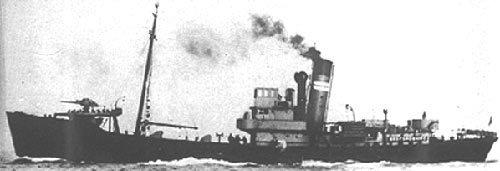In the Front Line With Our Searchlight-Men
The War Illustrated, Volume 3, No. 46, Page 49, July 19, 1940.
Travelling along the South Coast we approached at dusk searchlight stations whence one can sometimes see the German beams across the Channel. Here between 20 and 30 miles from the enemy the armed darkness seemed to wait and listen, and the half-seen familiar English countryside and seaside became strangely exciting.
"You should have been here the day before yesterday", said the corporal in charge who was once a stockbroker's clerk. "We had a bit of fun." Their fun was front-line stuff – a private battle of their own. These, perched on their bare headland, with a Dornier, flying round and round, trying to mop them up with machine-gun fire. "The first day we had new potatoes in our ration", said the acting cook sadly, "and I never had time to cook them".
They fought the Dornier as he circled. Then they were bombed. "There are five craters flanking this site, and they didn't half make a mess of my pots and pans", added the cook.
Suddenly to the south-west of us bright bayonets of light began to probe the night. "That's him", muttered the N.C.O. with satisfaction. The men on the sound detector stretched their huge mechanical ears towards the searching beams. "Hostile aircraft approaching", they confirmed.
"Target south-west engage!" The two men in the shadows round the lamp stood ready. The sizzle of violet smoke, and our light was erect, throwing a pallor of violet moonshine over the site. The sound of 'planes was near now. Neighbouring beams searched with us with canny cooperation. Everyone was tense, sighting with all the power of the huge swinging lamp, and ready for bombs or for the sudden dive attack down the beam itself.
At last the pleasant English command "douse!" broke the beam off and the watchers were left to blink in utter darkness and discuss their luck. – Story by John Pudney of the "News Chronicle".
Index
Previous article
Hitler Intensifies the Air War Against Britain
In twenty days the Germans lost at least twenty bombers in fruitless raids on Britain despite the adoption of daylight raids from July 1st. Only two British fighters were lost during this period. On J
Next article
I Was There! - I Heard the Horst Wessel Song in Jersey
A refugee from Jersey, while waiting for nightfall to escape from the island, saw Nazi troops pass within a few yards of him. Reaching England safely, he told his story to Laurence Wilkinson of the "D




